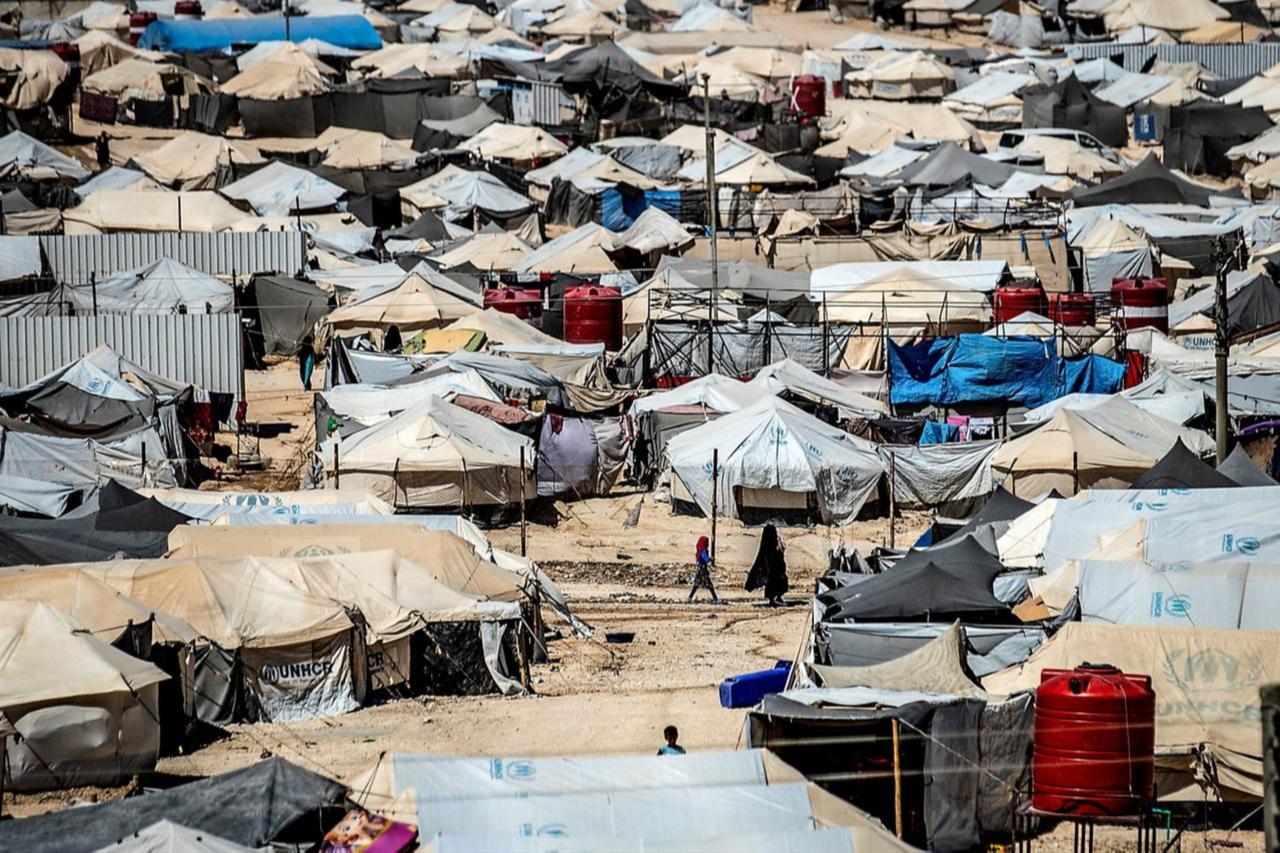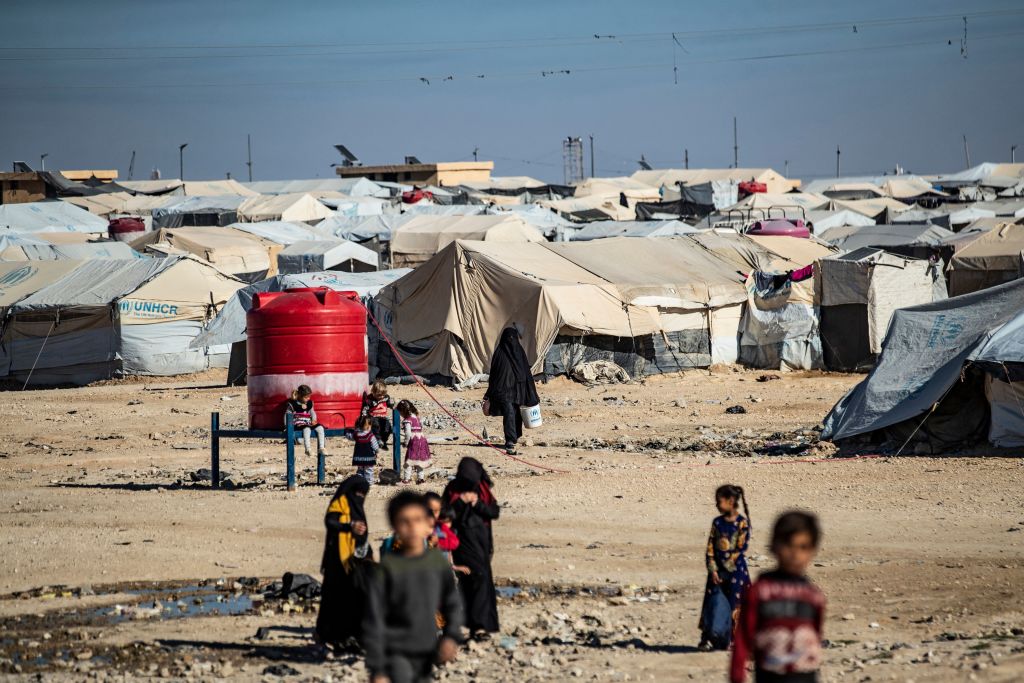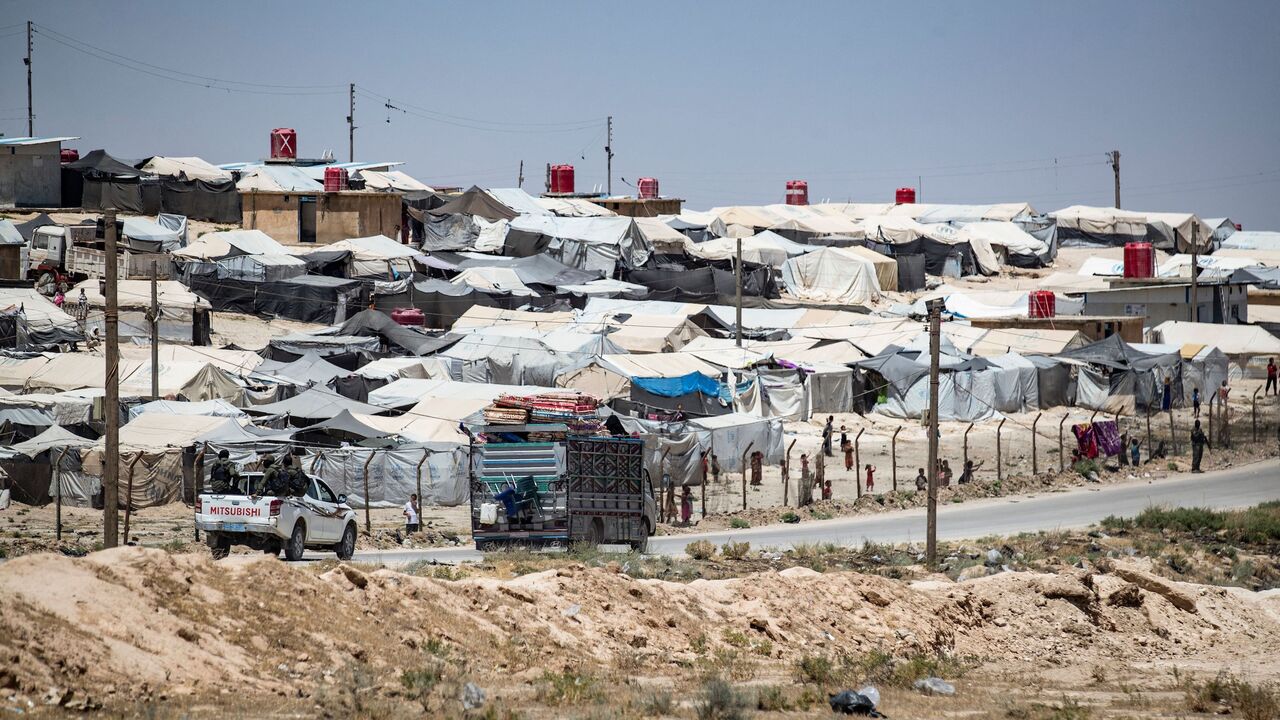
The United States has called for the repatriation of approximately 30,000 people from over 70 countries currently held in two camps in northeastern Syria controlled by the PKK/YPG terrorist organization, with the majority being children under 12 years old.
The U.S. State Department issued a written statement on Tuesday regarding the repatriation of an American child citizen from the camps last week, providing assessments about conditions in the facilities that house Daesh terrorists and their families.
The statement emphasized that the camps hold approximately 30,000 people from over 70 countries across two separate facilities, with the majority consisting of children under 12 years of age.
"The only durable solution to the humanitarian and security crisis in these displaced persons camps in northeast Syria is for countries of origin to repatriate, rehabilitate, reintegrate, and, where appropriate, ensure accountability for their nationals," the U.S. State Department said.
"The same goes for former Daesh fighters held in detention centers in northeast Syria. As we do with our own nationals, every country must take responsibility for its nationals in northeast Syria and not look to others to solve the problem for them.
They should also share in the burden incurred in caring for and repatriating their nationals," the State Department added.

The al-Hol and Roj camps are located in Syria's eastern al-Hasakah province and were originally established for those fleeing conflicts that began with the U.S. invasion of Iraq in 2003.
PKK/YPG controls these camps, which house civilians who fled clashes with the Daesh terrorist organization during Syria's civil war, as well as some surrendered Daesh members and their families.
Multiple international organizations, primarily the United Nations, have repeatedly raised concerns about conditions in the camps, where populations have reached tens of thousands at various times.
Issues include failure to maintain internal security, violence and abuse against women and girl children, and poor living conditions.
The PKK/YPG has faced criticism for remaining passive as conditions deteriorated in the camps, with minimal intervention in maintaining order within the occupied territory.
The failure to initiate rehabilitation processes for thousands of families who are not organization members, as well as thousands of Daesh members and their children, has been criticized.
The camps have been essentially left to their own devices, with expectations that conditions would worsen further, raising questions about their continued existence.
However, the PKK/YPG has used its control over the camps as a "diplomatic contact" tool with dozens of countries, primarily the United States and European nations, under the pretext of controlling ISIS and disarming elements.
Following the collapse of the Ba'ath regime in Syria, efforts to restore the country's territorial integrity and sovereignty have brought the status of the camps back to the agenda.
Analysts suggest that if the camps are removed from PKK/YPG control or lose their importance, this would eliminate the 'prison service' need that has particularly contributed to the organization's relations with the United States.
The humanitarian crisis in the camps has persisted for years, with international organizations documenting systematic problems, including inadequate healthcare, education, and basic services for the detained populations.

Despite repeated calls from the U.S. and international organizations, many countries have been reluctant to repatriate their citizens from the Syrian camps, citing security concerns and legal complications.
The repatriation process involves complex legal, security, and diplomatic considerations, including verification of citizenship, security screening and establishment of appropriate legal frameworks for prosecution or rehabilitation upon return.
Children born in the camps face particular challenges, including documentation issues and questions about citizenship status in their parents' home countries.
The U.S. statement represents the latest in ongoing diplomatic pressure on international partners to address what American officials describe as an unsustainable situation that poses both humanitarian and security risks.
The camps' continued existence under current conditions has been described by humanitarian organizations as violating international standards for detention and child welfare, with calls for immediate action to resolve the crisis through a coordinated international response.